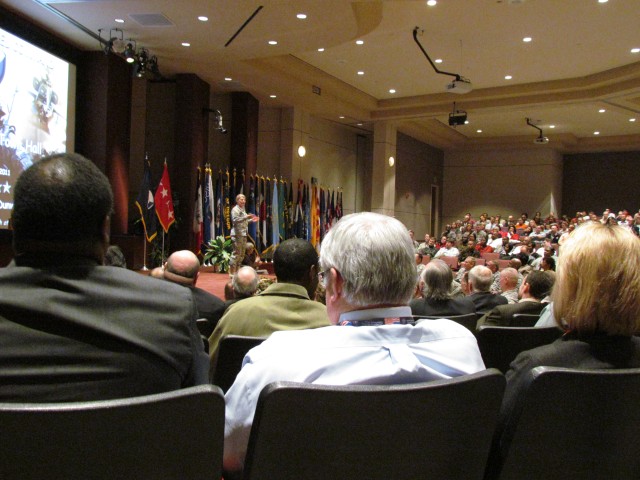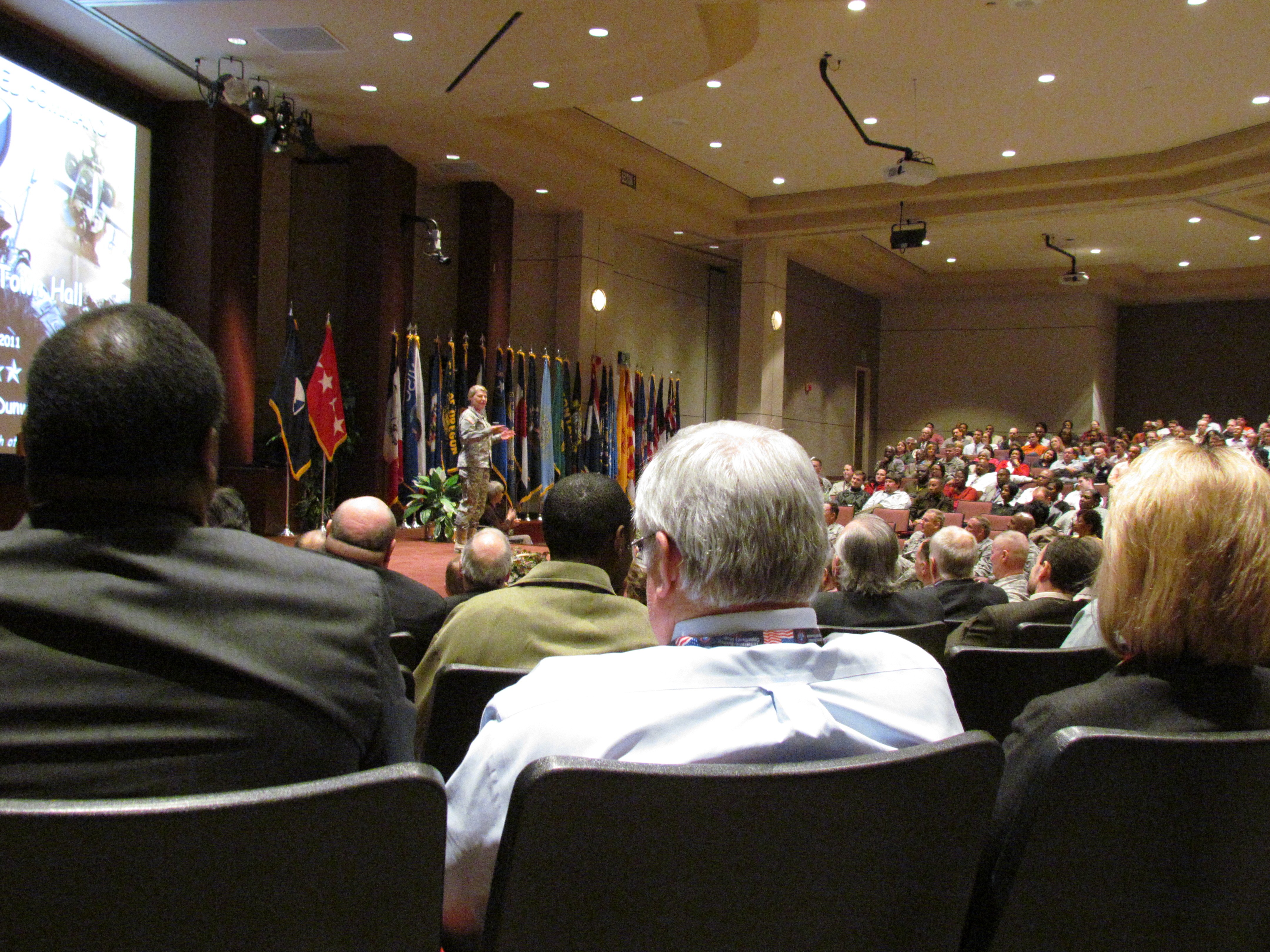
REDSTONE ARSENAL, Ala.--The Army Materiel Command remains strong today thanks to the 70,000 employees who represent the command throughout the world, said its commander during Friday's packed Town Hall Meeting in Bob Jones Auditorium.
Despite the demands of two wars, budget issues, an Army in transformation and moving its headquarters from Fort Belvoir, Va., to Redstone Arsenal, AMC continues to provide its customer - the war fighter - with the best equipment and support, said AMC commander Gen. Ann Dunwoody.
And that's because of the employees that make it happen.
"I want to thank each and every one of you for what you do because each and every one of you make a difference," she said. "I've never seen a more complex and busy time in our Army ... But you've made this very busy time seem seamless to our customer."
The work force has been instrumental, she said, in transforming the operational Army into a modular force that is agile, capable, flexible and lethal, despite all the other issues that try to get in the way. She said AMC has done in four years what it would have taken other organizations many years to accomplish.
"We would have never gotten here without the help of the entire team," she said. "We did all this while supporting two wars in very, very tough environments. ... Usually institutional change takes decades. Things that take decades you have done in four years."
To prove her point, Dunwoody took her audience "out of the foxhole to see what's going on across AMC." She talked about innovation, creativity and collaboration, the expertise of AMC's logistics and acquisition communities, the organization's global impact and global footprint, making changes in the way AMC does business and redefining AMC's core capabilities.
She also talked about challenges, such as worldwide political unrest, expanding military needs, uncertainty, budget cuts, the need to rid the Army of legacy systems and current workloads that are three times greater than those during Vietnam.
"We are blessed with Congress funding this Army during a period of war," she said. "Now, we have opportunities to fix ourselves, to shape ourselves to be more effective and to become more efficient. ...
"We must do what's best for our country. It can no longer be what's best for me or for AMC. To keep from breaking this Army, we have to look at what's best for our Army."
With the uptempo drawing down somewhat, Dunwoody believes AMC and its employees can build back into the organization the efficiencies that were lost during a period of war when the Army was able to pay more for faster service. The move of AMC to Redstone brings with it an opportunity to build in efficiencies and transformation as the organization stands back up in its new facility.
"We are changing the headquarters so it looks like the headquarters of the future," she said. "We are going to build the expertise back into our headquarters" for things like contracting, foreign military sales and research, development and engineering.
AMC is also merging logistics and maintenance organizations into AMC, making for a "very, very powerful alignment of core capabilities," Dunwoody said.
In everything AMC does, it will perform the Army's business with a focus on the war fighter customer, she said. Changes at AMC - including championing the work force, modernizing the industrial base, building an enterprise network, focusing on condition-based maintenance, developing as the lead materiel integrator, spearheading acquisition research and development contracting reform and enabling security assistance - will turn the organization into a globally networked materiel enterprise.
With the move of AMC to Redstone nearing completion, Dunwoody said 11,000 of the organization's employees - or 3 percent - have been affected by the BRAC 2005 recommendation to move AMC.
"We are an Army in motion ... Our center of gravity has changed. Our center of gravity isn't Fort Belvoir. It is Huntsville. It is here," she said.
About 96,000 AMC-connected employees - 70,000 of those contractors -- are deployed around the world. Because of those employees, AMC "around the world is making a difference," Dunwoody said.
AMC is working to support its employees by tailoring Soldier programs to meet the needs of its civilian work force, which is 97 percent of the 70,000-employee organization. Locally, Dunwoody and her team have fought and won the right to have a first-class cafeteria located with its headquarters on Martin Road.

Social Sharing